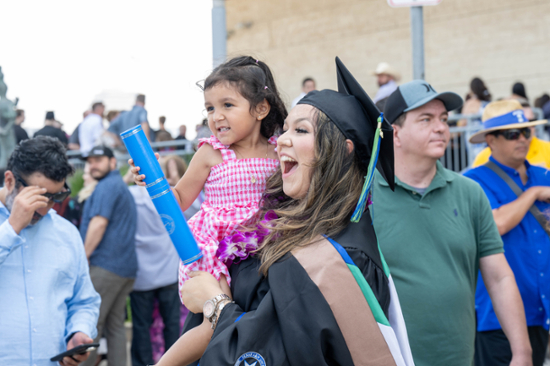Prolific Historian Dr. Paul Ortiz Connects United States History with Neighboring Countries
CORPUS CHRISTI, Texas – History tells the story of nations, chronicles humanity’s mutual struggles, and allows us all to understand the way in which people are interconnected.
“History is more important now than ever,” said Dr. Paul Ortiz, Associate Professor of History at the University of Florida and recent Texas A&M University-Corpus Christi Humanities Speaker Series keynote speaker. “The world is smaller than ever, and our youth need to interact with people from all over the globe. If you only know your own history or culture, you’re not going to be able to interact successfully with someone from Mexico, or people in Kenya or Russia.”
During the Humanities Speaker Series event on April 11, Ortiz, whose research examines how history crosses borders to weave a greater international tale, spoke to more than 200 Islander students about the different perspectives in history as discussed in his book “An African American and Latinx History of the United States.” The book explores the interconnected histories of the United States and the countries surrounding it, including Mexico and Haiti.
“Dr. Ortiz is researching a history that many of our students can identify with,” said Dr. Claudia Rueda, Assistant Professor of History at Texas A&M-Corpus Christi. “Studies have shown that culturally relevant curricula or classes that feature Mexican American, African American, or Asian American history, students of color tend to perform better because those are histories they can recognize themselves in. Moreover, everybody benefits when we have a better understanding of the past that incorporates multiple perspectives.”
During his Island University visit, Ortiz not only spoke as a lecturer, but also spent two days meeting one-on-one with students and faculty. Chloe Elaine Torres, history major with a minor in Spanish, attended a special luncheon for students which featured Ortiz as the honored guest.
“I am a community organizer and I want to learn how to use that role to bring in as many people as possible from as many backgrounds as possible,” said Torres. “Learning how different groups are affected by issues of race, the environment, and war will help me mobilize them.”
Ortiz has published three books and won multiple awards including the Harry T. and Harriette V. Moore Book Prize from the Florida Historical Society and the Florida Institute of Technology. He is currently serving as Director of the Samuel Proctor Oral History Program. Before joining academia, Ortiz served in the United States Army and was stationed in Central America. He says it was that chance to interact with people from different cultures that first opened his eyes to the importance of interconnected histories.
“An effective history doesn’t just write from within the U.S.,” said Ortiz. “It is something that can bring us together. Even if I grew up in a different region than you, or if my race or ethnicity is different, there are still many things we have in common.”

















